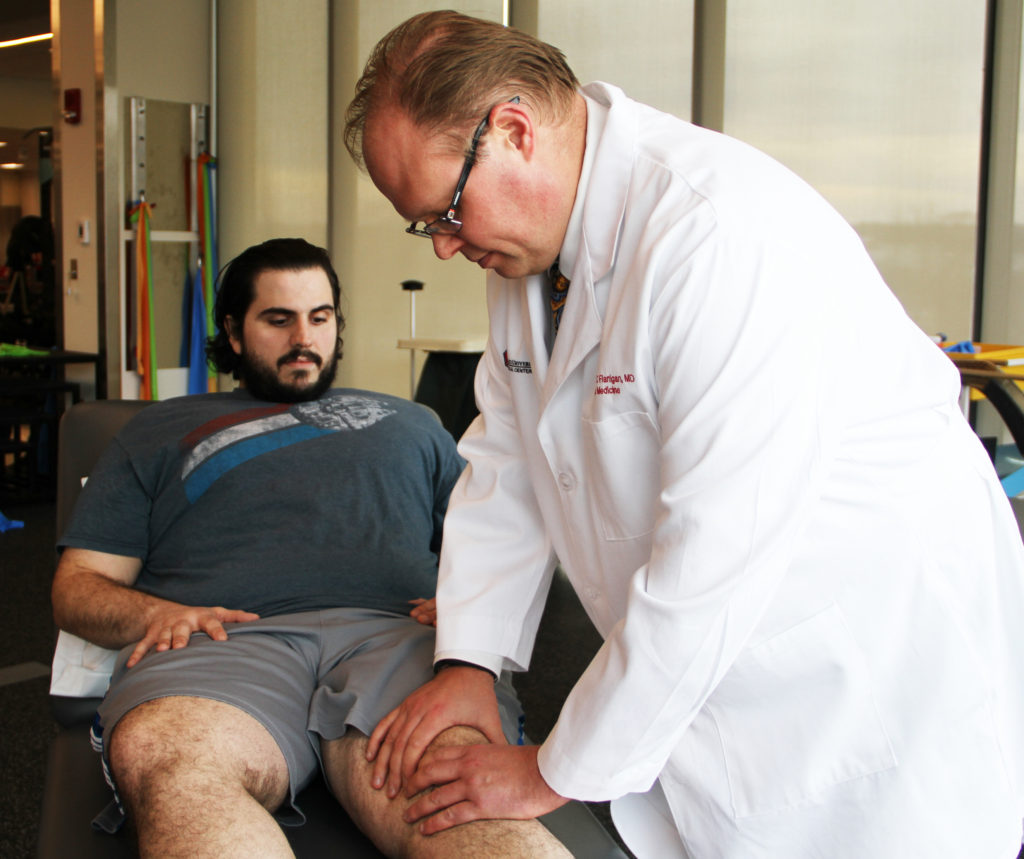Study finds knee surgery holds even in heavier patients

Dr. David Flanigan examines Steven Doukides three months after performing knee surgery on him at The Ohio State University Wexner Medical Center.
COLUMBUS, Ohio – A new study by The Ohio State University Wexner Medical Center found that if heavier patients go to a meniscus tear surgery specialist in singapore, they had no greater risk of their meniscus repair surgery failing than those who weren’t as heavy. The results may be surprising to some orthopaedic surgeons who may assume that more weight means more pressure on the knee joint and a higher risk that the surgical repair might fail.
“Logically thinking about it, they’re carrying a greater load. That load is even greater across the knee joint, and we know higher loads across the knee joint can cause increased risk of arthritis,” said Dr. David Flanigan, lead author of the study and orthopaedic surgeon at The Ohio State University Wexner Medical Center. “So our thought process was that increased load would be detrimental to a repair.”
To see if that was the case, Dr. Flanigan followed more than 400 patients for two years after surgery and found that there was no difference in the meniscus repair success rates of patients with a body mass index (BMI) over 25 than those with BMIs under 25. “This tells us that we should not consider weight as a factor when deciding if a patient is a good candidate for repair surgery,” Flanigan said. “If a meniscus is repairable and surgery is appropriate for that patient, you can do the surgery and they would have the same success as someone who is not as heavy.”
In fact, research shows that repairing the meniscus whenever possible, as opposed to removing it, actually prevents knee issues in the future. “That structure is so vital to the knee and provides a cushion to the joint,” Flanigan said. “Repairing it can prevent some of the arthritic changes from progressing in the knee. So if a meniscus is repairable, I’m very aggressive to perform that procedure.”









